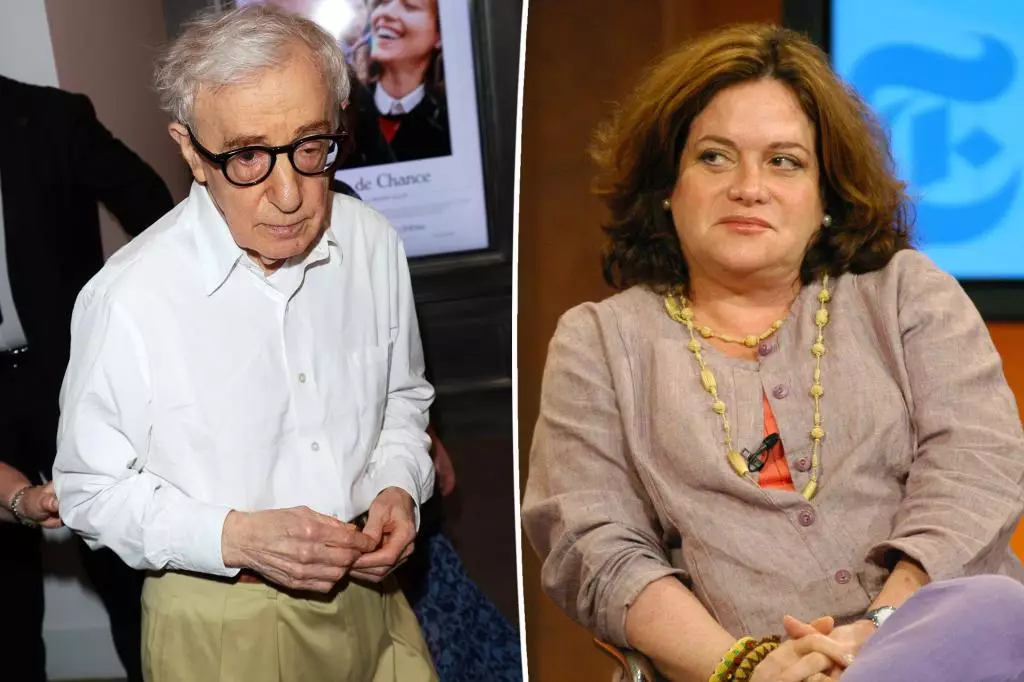In an unexpected twist, the controversial figure Woody Allen appeared at a recent soirée, stirring conversations among attendees and observers alike. Previously a staple in the social scene, particularly in a gathering celebrating creative endeavors, Allen’s absence from such events had become noticeable in the wake of the #MeToo movement, which resurfaced long-standing allegations against him. Yet, on a Tuesday evening amidst the upscale setting of literary figure Daphne Merkin’s Upper East Side home, the famed director made a reappearance alongside his wife, Soon Yi Previn, prompting both intrigue and speculation.
The gathering marked the launch of a new literary magazine produced in conjunction with the dating app Feeld. Encapsulating a diverse array of sexual identities and preferences within its framework, Feeld strives to cater to the “curious” when it comes to relationships. The app’s intriguing categorization of potential matches includes not just the familiar heterosexual pairings but also a spectrum from FF to MM, incorporating configurations that challenge traditional boundaries. Allen’s attendance at such an event—with its provocative theme—far from dilutes his complex legacy, instead igniting debates around cultural acceptance of artists with contentious pasts.
A Fitting Theme for the Magazine
The first edition of the magazine, playfully named AFM (which stands for both “A F**king Magazine” and “A Feeld Magazine”), is a daring exploration of modern relationships and intimacy. Its editorial team boasts impressive literary credentials, featuring contributions from prominent voices such as Jazmine Hughes and Allison P. Davis, alongside esteemed editorials by Haley Mlotek and Maria Dimitrova. This established caliber elevates the magazine’s ambitions much beyond mere titillation, positioning it as a thoughtful commentary on contemporary social dynamics.
During the event, the atmosphere was enriched by readings from sharers of varying literary perspectives. James Ivory and Tony Tulathimutte entertained the company, the latter injecting humor into discussions regarding the magazine’s inaugural theme: the pursuit of happiness. Their contributions reflected a blend of opulence and introspection, embodying the complex interplay of personal and artistic exploration. Merkin herself didn’t hold back, captivating guests with musings that intertwined the glamour and struggles of icons like Marlon Brando and Marilyn Monroe.
Celebrity Presence and Cultural Reflections
The gathering also drew an impressive crowd consisting of influential figures such as Candace Bushnell and Molly Jong Fast, amplifying its status as a noteworthy cultural event. Hosted by PR maven Kaitlin Phillips, the soirée not only celebrated the launch of the magazine but also served as a reminder of the intricate tapestry of personal histories among those in attendance. For Allen, this moment could be perceived as a reclamation of his public identity: a brief return to a world he once flourished in.
His presence raises larger questions about endurance in the arts, as well as how modern society grapples with the legacies of figures accused of serious wrongdoing. The captivating blend of celebrity culture and literary endeavor offered both excitement and discomfort, compelling a generation to reassess what it means to celebrate creativity alongside its creator. As AFM becomes available for audiences, the idea of engaging with art, regardless of the artist’s complexities, continues to provoke dialogue in our evolving cultural landscape.

